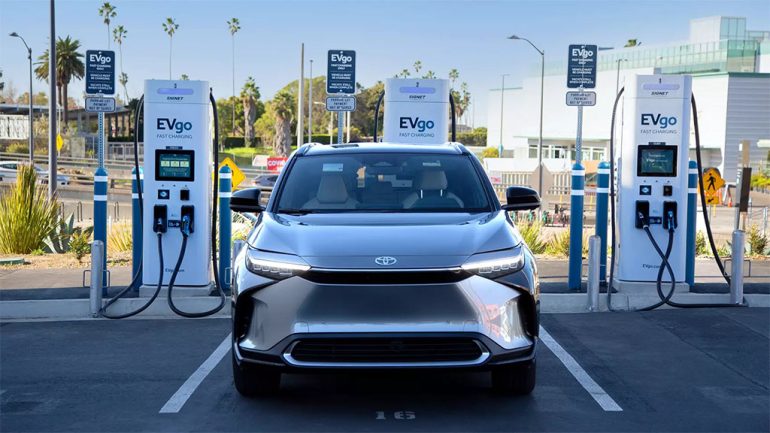
Trump Administration Places NEVI EV Charging Funding on Hold, Casting a Doubt over Future Expansion – Automotive Addicts
Automotive
The Trump administration has made another significant move against federal EV initiatives, this time by pausing new projects under the National Electric Vehicle Infrastructure (NEVI) program. The Department of Transportation has revoked its previous guidance and frozen billions of dollars in federal funding to build charging infrastructure. The unexpected decision has thrown EV charging expansion in uncertainty. It impacts states and private companies who were relying upon the program to expand America’s public charger network. The 2021 Infrastructure Investment and Jobs Act was originally established to support the demand for reliable EV chargers across the U.S. The program had been delivering results despite its slow pace, and hundreds of millions of dollar were allocated for new charging stations. The administration cited a “need to review the policies underlying implementation of the NEVI Formula Program”, and revoked any prior program guidance. States are prohibited from committing (binding) any new funds to the program, effective immediately. This is because the Impoundment Control Act of 1975 prohibits a president to block congressionally appropriated funding without legislative approval. This could lead to legal challenges, similar to the lawsuits already filed against the administration for pausing other federal spending initiatives.
The Immediate Impact
While states can still use funds that have already been obligated, this decision halts any new commitments, meaning that numerous planned charging stations may now be delayed indefinitely. By late January, the NEVI Program had funded 51 charging stations in 14 states with 224 ports. More importantly, states had awarded $615 million for nearly 1,000 additional stations–many of which now face uncertainty.
Industry leaders and policy experts have been vocal in their criticism of the move. Andrew Wishnia was the former Deputy Assistant Secretary for Climate Policy in the U.S. DOT argued that federal law was violated by the memo, since states had already met the one requirement to receive NEVI funding: submitting a plan for deployment. Ryan Gallentine, of Advanced Energy United, urged state DOTs not to stop implementing the program despite new guidelines.
A setback for EV Adoption
The absence of reliable public charging stations remains a major obstacle for widespread EV adoption across the U.S. Despite automakers’ commitment to increase EV production in the U.S., consumers are still hesitant due to concerns about charging stations, availability and reliability. This decision has created significant uncertainty for businesses, fleet operators and drivers who had been counting on an expanded charging infrastructure. Companies that had already invested in NEVI-supported projects may now need to rethink their strategies, while state transportation departments are left in limbo, waiting for new guidance.
What’s Next?
With legal challenges likely, the Trump administration may not have the final say on this issue. Many experts believe that courts may rule against the Trump administration’s attempts to stall this program. Congress has already allocated the funds and the FHWA will release new draft guidance in the spring, followed by a public comment period. FHWA stated it would release new draft guidelines in the spring and then a period for public comments, which means that NEVI funding may remain in limbo weeks or months. This latest development brings to light the changing landscape of EV infrastructure, and the difficulties of relying solely on federal funding. The future of NEVI is uncertain. However, it’s clear that the road to an electric America has just hit a speed bump.
Follow us today:

